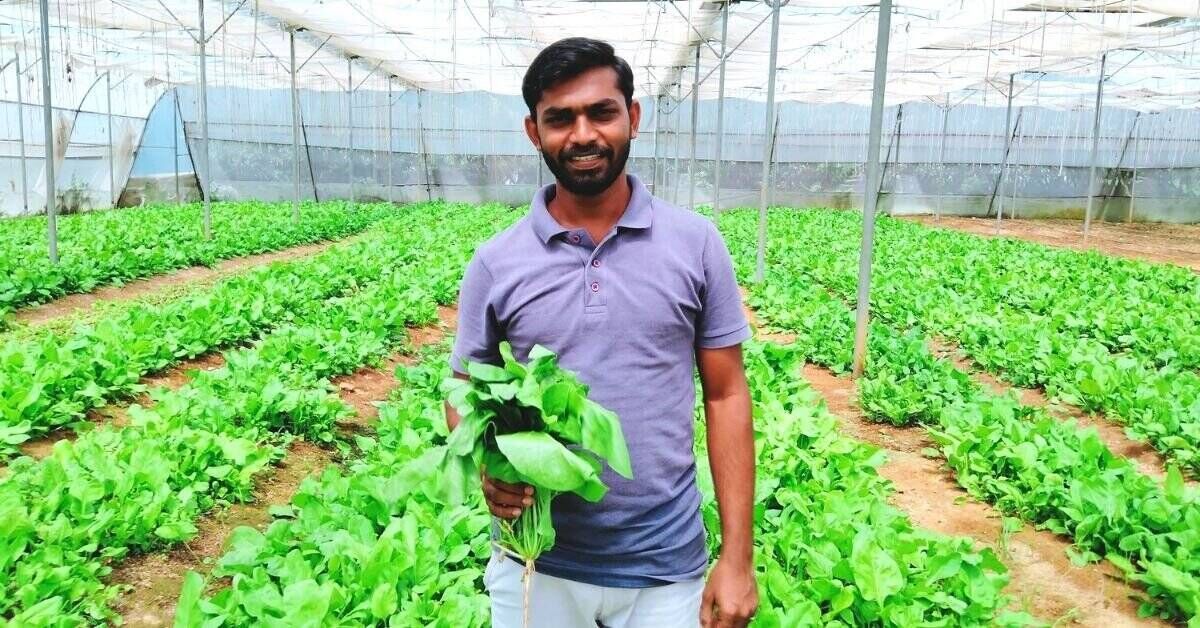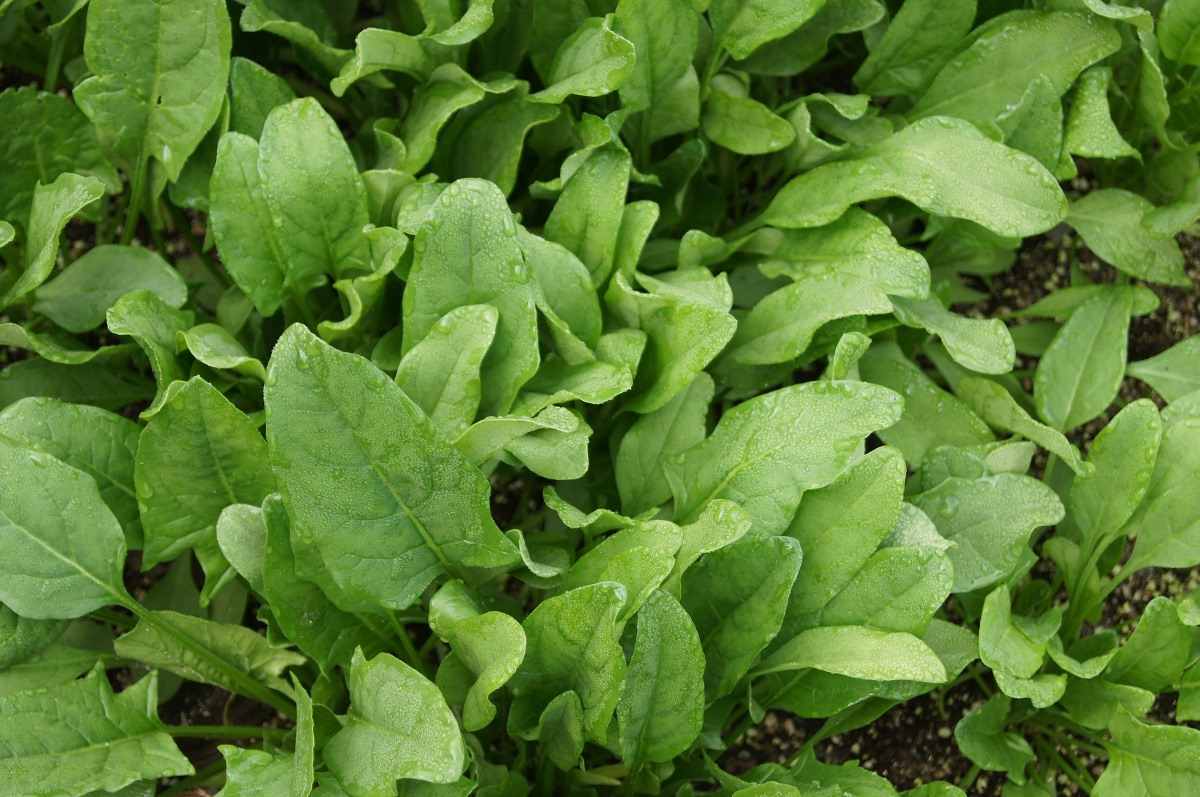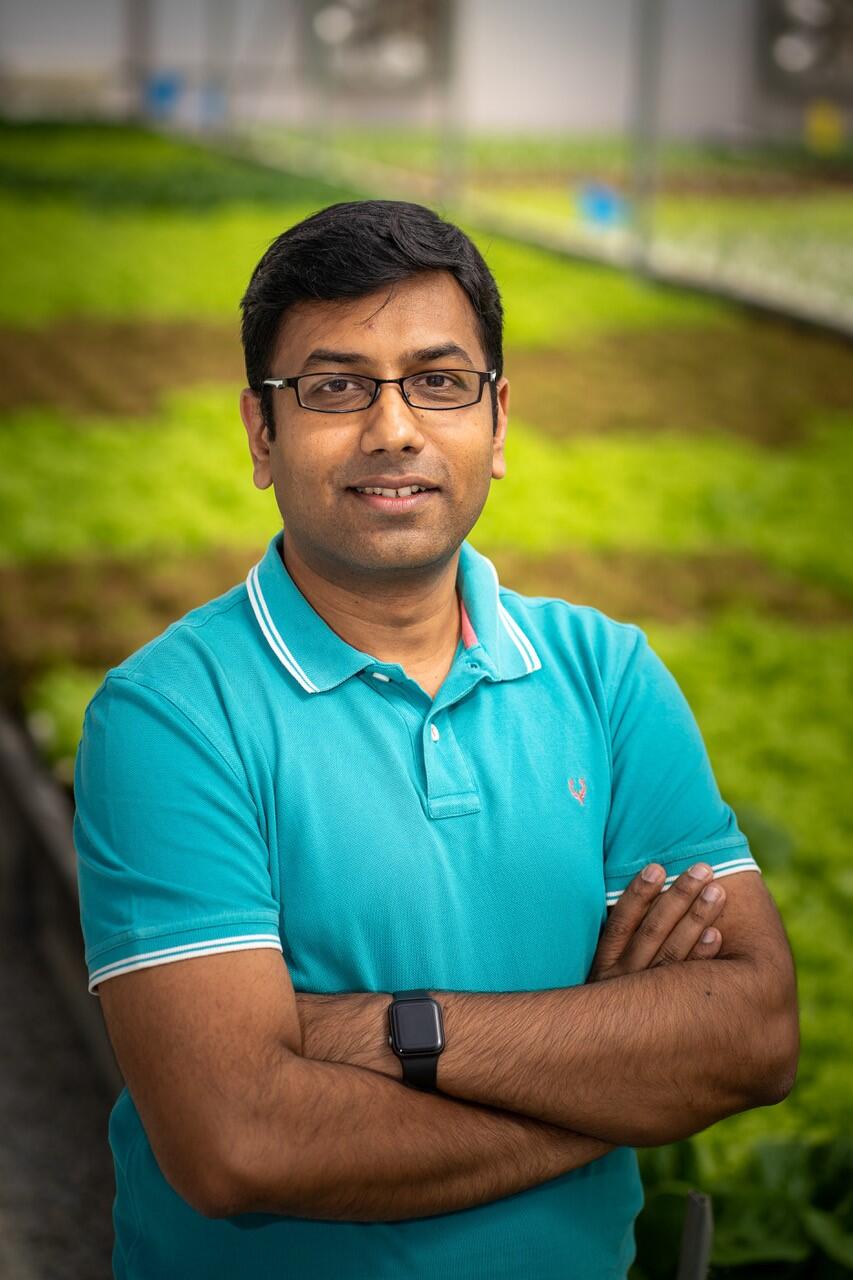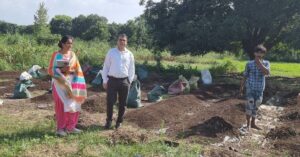From Earning Rs 35,000/Month as a Techie, I Now Reap Rs 3.5 Lakh as a Farmer
Nanda Kishore Reddy, a former techie with an IT company in Hyderabad, left his steady job at the start of COVID-19 pandemic to help his father, a farmer, maximise yields and profits growing spinach and English cucumber.

While Hyderabad resident R Nanda Kishore Reddy had held a steady job as an IT professional for over three years, he believed something was amiss. His 9-5 routine and earning Rs 35,000 a month had left him feeling unsatisfied. When the COVID-19 pandemic struck in March 2020 and people around him began losing their jobs, this son of a farmer from Railapur village, Hyderabad, knew he had a decision to make. After all, when things go awry, people find a way to come back home. ((Image above of Nanda Kishore Reddy, the former techie who is now a farmer.)
“While I had seen my father work on our farm, I never pursued it. Back then, farming didn’t seem like a lucrative venture to me. However, when the pandemic hit and people lost their jobs, lockdowns were announced, and everyone was buying food to store in bulk, it became clear to me just how important agriculture is to our survival,” Kishore, who was born in Mahbubnagar, Telangana, tells The Better India.
“People will have nothing to eat if farmers fail to harvest. Leveraging my knowledge and passion for technology, I knew I could help my father maximise his yields and profits. I had also recently developed a strong interest in organic farming and new innovations in the farming sector. It presented the right opportunity for me to work full-time in agriculture,” he adds.
So Kishore quit his job and returned to his village to help his father on the farm. Today, on over two acres, including a 1-acre polyhouse, Kishore and his father Raja primarily grow English cucumber and spinach, and obtain annual yields of approximately 30 tonnes. English cucumber makes up about 24 tonnes and is sold at Rs 28 per kg, and the spinach makes up for about six tonnes.
Meanwhile, Kishore says his earnings have increased from Rs 35,000 to Rs 3-3.5 lakh per month.
To grow spinach, English cucumber and other complementary crops over the course of three months, the total input costs — including labour, very limited amounts of fertilisers and pesticides, fertigation, and repairs to their polyhouse — amount to Rs 5 lakh. Meanwhile, earnings reach an average of Rs 10 lakh, Kishore claims. The rest of the year is spent in growing a variety of vegetables like capsicum, green chillies and okra (ladies’ fingers), among others.
Profiting from farming
“Growing up, I knew a few things about farming, but transitioning from my IT job back to agriculture wasn’t as straightforward. Assistance came from my father and a friend who taught me the ropes. While my father taught me when to plant and harvest, which crops would be suitable for a given season, and everything else, a friend who studied agriculture also helped me understand a few processes that I’ve employed. I’ve been farming for almost two years now and this return to the soil has proven largely profitable because of the methods I’ve used, like drip irrigation, non-residual sprayings, raised bed system and drip fertigation,” says Kishore.
Drip fertigation is an important technique used to infuse fertilisers or water-soluble products into the irrigation system. In this system, water is emitted through the drippers at a lower rate, which allows nutrients from the fertilisers to move along with the water. This ensures an even distribution of fertiliser through the soil, maintaining a high nutrient intake, leaving the soil moist for a longer period, saving water and increasing soil efficiency. It not only improves the yield quality, but also seed germination and reduces soil erosion.
In the raised bed system, the land is divided into a number of permanent beds by paths. These beds are narrow enough to ensure there is no need to tread on the soil. “The raised bed system is an improved surface irrigation strategy, which enhances water productivity and makes the application of water in irrigated systems more efficient,” notes this description by the FAO (Food and Agriculture Organization of the United Nations).
“This process also allows us to grow a higher yield, which compensates for the space lost to the paths. Finally, some traditional practices that play a major role in yielding a profitable harvest are crop rotation, composting, sticky and pheromone traps, disease and pest resistance seeds, seed treatment and crop observations, etc. Seed treatment means treating seeds with fungicide or insecticide to target certain major crop diseases. For example, treating palak (spinach) with thiram fungicide can prevent the dampening of plants or seeds. The selection of pest and resistance seeds also plays a key role in ensuring a higher quality produce,” he adds.

With a little help from his friends
To achieve their goals of making farming an attractive and profitable endeavour, Kishore and his father Raja work in close conjunction with Deep Rooted.Co, an agri-tech farm-to-home startup that sells packaged and curated fruits and vegetables, which also offers farmers training and technical assistance from agronomists to help increase profitability.
Deep Rooted.Co contacted Raja in 2018 to help maximise his overall yield. They assigned agronomist Maheswar Reddy to help him understand certain aspects of farming that today enable Kishore and his father to minimise input costs and maximize profits.
“For example, we would initially use 10 bags of fertiliser and invest a lot of money on a particular stretch of the farm. In contrast, Maheswar explained how we could achieve the same results using only two bags for that particular area. He also tells us about the optimal time to plant specific crops that will produce larger yields. We have also learned about drip fertigation, sowing methods, growing crops batch-wise, how to grow a quality supply and vegetable handling among other things. Our income has doubled since we began working with Deep Rooted.Co. On an average, we earn approximately Rs 4 lakh within 45 days from the company,” says Kishore.
As Deep Rooted.Co co-founder, Avinash BR says, “Our goal is to substantially increase small farmers’ yields and profits through a demand-driven supply chain and minimise wastage. Precision farming is the specialty of our in-house agronomy team. By constantly sharing information on land preparation, sowing, and harvest schedules, as well as planning resources for the full crop cycle, farmers such as Nanda Kishore are able to maximise yield and minimise farm losses. We have also increased yields several-fold and reduced post-harvest losses significantly, from 30% to 6%. As of now, we have more than 90 farmers operating across 120 acres in areas around Bangalore and Hyderabad, growing crops under the guidance of experts and agronomists.”

Avinash believes that the likes of Kishore, a young farmer with knowledge of technology, has a lot of potential to grow. “His interest in organic farming and the zeal to learn new techniques will allow him to achieve more. We feel with continued hard work and collaboration with our agronomist, he can grow greater volumes,” he adds.
(Edited by Divya Sethu)
Like this story? Or have something to share? Write to us: [email protected], or connect with us on Facebook and Twitter.
If you found our stories insightful, informative, or even just enjoyable, we invite you to consider making a voluntary payment to support the work we do at The Better India. Your contribution helps us continue producing quality content that educates, inspires, and drives positive change.
Choose one of the payment options below for your contribution-
By paying for the stories you value, you directly contribute to sustaining our efforts focused on making a difference in the world. Together, let's ensure that impactful stories continue to be told and shared, enriching lives and communities alike.
Thank you for your support. Here are some frequently asked questions you might find helpful to know why you are contributing?


This story made me
-
97
-
121
-
89
-
167














